第13章 WHILE THE AUTO WAITS(1)
Promptly at the beginning of twilight, came again to that quiet corner of that quiet, small park the girl in gray. She sat upon a bench and read a book, for there was yet to come a half hour in which print could be accomplished.
To repeat: Her dress was gray, and plain enough to mask its impeccancy of style and fit. A large- meshed veil imprisoned her turban hat and a face that shone through it with a calm and unconscious beauty. She had come there at the same hour on the day previous, and on the day before that; and there was one who knew it.
The young man who knew it hovered near, relying upon burnt sacrifices to the great joss, Luck. His piety was rewarded, for, in turning a page, her book slipped from her fingers and bounded from the bench a full yard away.
The young man pounced upon it with instant avid- ity, returning it to its owner with that air that seems to flourish in parks and public places - a compound of gallantry and hope, tempered with respect for the policeman on the beat. In a pleasant voice, be risked an inconsequent remark upon the weather that in- troductory topic responsible for so much of the world's unhappiness-and stood poised for a mo- ment, awaiting his fate.
The girl looked him over leisurely; at his ordinary, neat dress and his features distinguished by nothing particular in the way of expression.
"You may sit down, if you like," she said, in a full, deliberate contralto. "Really, I would like to have you do so. The light is too bad for reading.
I would prefer to talk."
The vassal of Luck slid upon the seat by her side with complaisance.
"Do you know," be said, speaking the formula with which park chairmen open their meetings, "that you are quite the stunningest girl I have seen in a long time? I had my eye on you yesterday.
Didn't know somebody was bowled over by those pretty lamps of yours, did you, honeysuckle?"
"Whoever you are," said the girl, in icy tones, "you must remember that I am a lady. I will excuse the remark you have just made because the mistake was, doubtless, not an unnatural one -- in your circle.
I asked you to sit down; if the invitation must con- stitute me your honeysuckle, consider it with- drawn."
"I earnestly beg your pardon," pleaded the young ran. His expression of satisfaction had changed to one of penitence and humility. It was my fault, you know -I mean, there are girls in parks, you know - that is, of course, you don't know, but -- "
"Abandon the subject, if you please. Of course I know. Now, tell me about these people passing and crowding, each way, along these paths. Where are they going? Why do they hurry so? Are they happy?"
The young man had promptly abandoned his air of coquetry. His cue was now for a waiting part; he could not guess the role be would be expected to play.
"It is interesting to watch them," he replied, pos- tulating her mood. "It is the wonderful drama of life. Some are going to supper and some to -- er -- other places. One wonders what their histories are."
"I do not," said the girl; "I am not so inquisi- tive. I come here to sit because here, only, can I be tear the great, common, throbbing heart of hu- manity. My part in life is cast where its beats are never felt. Can you surmise why I spoke to you, Mr. -- ?"
"Parkenstacker," supplied the young man. Then be looked eager and hopeful.
"No," said the girl, holding up a slender finger, and smiling slightly. "You would recognize it im- mediately. It is impossible to keep one's name out of print. Or even one's portrait. This veil and this hat of my maid furnish me with an incog. You should have seen the chauffeur stare at it when he thought I did not see. Candidly, there are five or six names that belong in the holy of holies, and mine, by the accident of birth, is one of them. I spoke to you, Mr. Stackenpot -- "
"Parkenstacker," corrected the young man, mod- estly.
" -- Mr. Parkenstacker, because I wanted to talk, for once, with a natural man -- one unspoiled by the despicable gloss of wealth and supposed social su- periority. Oh! you do not know how weary I am of it -- money, money, money! And of the men who surround me, dancing like little marionettes all cut by the same pattern. I am sick of pleasure, of jewels, of travel, of society, of luxuries of all kinds."
"I always had an idea," ventured the young man, hesitatingly, "that money must be a pretty good thing."
"A competence is to be desired. But when you leave so many millions that -- !" She concluded the sentence with a gesture of despair. "It is the mo- otony of it" she continued, "that palls. Drives, dinners, theatres, balls, suppers, with the gilding of superfluous wealth over it all. Sometimes the very tinkle of the ice in my champagne glass nearly drives me mad."
Mr. Parkenstacker looked ingenuously interested.
"I have always liked," he said, "to read and hear about the ways of wealthy and fashionable folks. I suppose I am a bit of a snob. But I like to have my information accurate. Now, I had formed the opin- ion that champagne is cooled in the bottle and not by placing ice in the glass."
The girl gave a musical laugh of genuine amuse- ment.